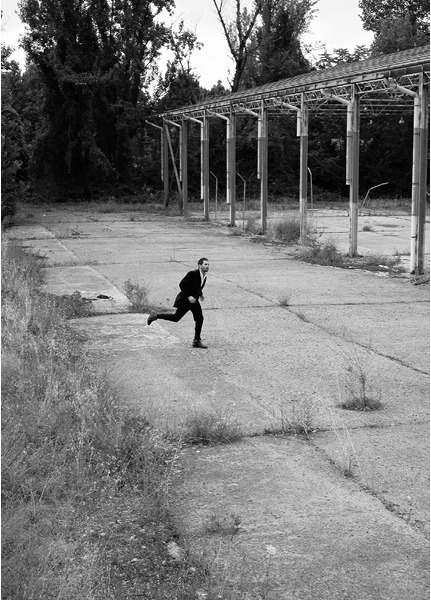
BAKUNIN
first performed on September 1, 2018
Lithuanian Pavilion, La Biennale di Venezia, Venice, Italy
performed three times in 2018
GODA PALEKAITÉ
Alicja Khatchikian, Stefano A. Moretti, Adomas Palekas
Vilnius, Lithuania / Brussels, Belgium
812395852s812395852c812395852h812395852i812395852z812395852m812395852a812395852.812395852t812395852h812395852e812395852a812395852t812395852r812395852e812395852@812395852g812395852m812395852a812395852i812395852l812395852.812395852c812395852o812395852m
palekaite.space
BAKUNIN
GODA PALEKAITÉ
We live in the crisis of democracy. Rising xenophobic nationalism, populist politicians, irresponsible media, outbreaks of violence, anti-immigrant agitation—the signs of democratic regression are well known today. The society of tomorrow will require intellectual and political architecture that does not yet exist. Can old ideas that were misread and mistreated throughout history open something in the contemporary society and inspire new political thought needed so badly?
“Bakunin,” based on life and thoughts of the most influential Russian anarchist thinker Mikhail Bakunin, was conceived in the intersection between contemporary performance strategies and reflections upon marginalized political history. The aim was to articulate a critique of established historical narratives and to stimulate political awareness.
In his public speeches as well as his underground activities Mikhail Aleksandrovic Bakunin (1814–1876) insisted on the pursuit of freedom and equality. He was a devoted critic of monarchy and religion as well as raising communism and capitalism. Bakunin’s critique was his life: he left Russia to study philosophy in Germany but never came back as a free person. He traveled through most of European countries giving speeches and initiating revolts. Every state he came to prosecuted him. He was given two life sentences in prison and sent to jail in Russia where he lost all his teeth from scurvy. Nevertheless, he managed to escape through Siberian rivers to Japan and USA, and finally came back to Europe to continue his deeds. Despite the worldwide influence of classical anarchist proposal, this story and Bakunin as a figure has been systematically erased from all official historical discourses. However, today we can perceive political anarchism as an inspiring archaeological artifact worth exposing.
The “Bakunin” performance followed research conducted within the contemporary anarchist community in Italy. A scripted conversation piece entitled “Put words in my mouth” was created as part of the performance and was introduced as a participatory technique engaging all audience members in a mass conversation on the political subject matter.